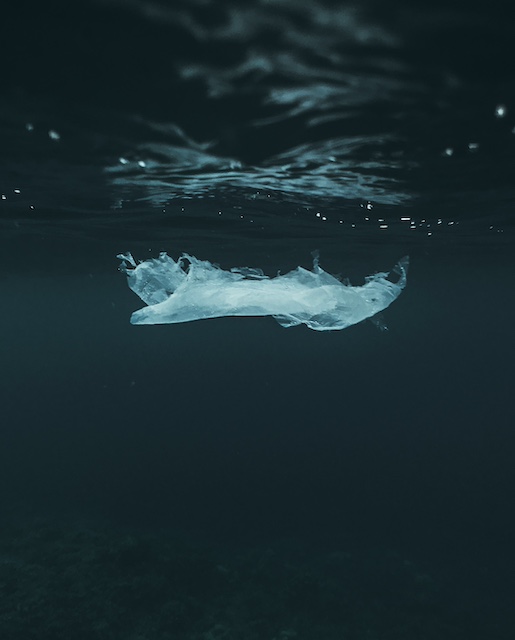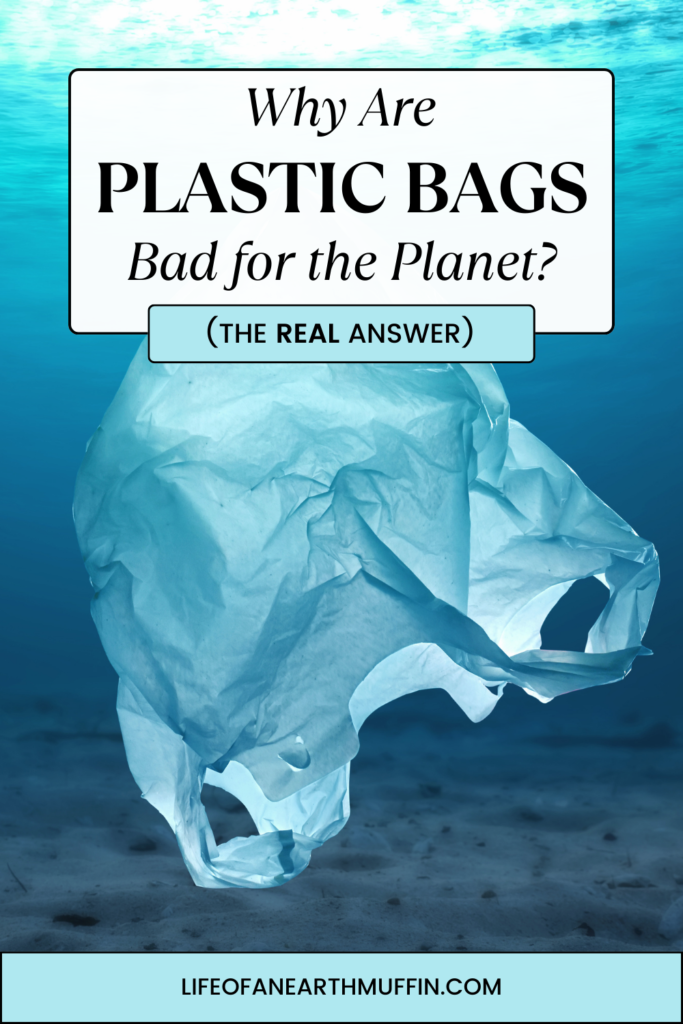Hey earth muffins! In the realm of convenience, the ubiquitous plastic bag has become a symbol of ease in our daily lives. However, beneath its seemingly harmless exterior lies a substantial environmental burden. In this post, we’ll delve into the adverse effects of plastic bags on the environment, answering the question “Why are plastic bags bad for the environment??”.

Why are they so bad?
- Pollution – Plastic bags are notorious for their persistence in the environment. They can take hundreds of years to decompose in the landfill, releasing harmful microplastics into ecosystems during the breakdown process.
- Wildlife hazard – One of the most devastating impacts of single-use bags is their threat to wildlife if they end up somewhere other than a landfill. Marine animals, in particular, mistake bags for prey. This can cause blockages in their digestive systems, malnutrition, and, ultimately, death.
- Resource depletion – The production of bags is also resource-intensive. It requires significant amounts of fossil fuels, contributing to the depletion of non-renewable resources and exacerbating climate change.
- Cost of clean up – The environmental toll of plastic bags comes with economic costs as well. Governments and communities spend considerable resources on cleanup efforts, from collecting litter to addressing the impact on wildlife and ecosystems. This money could be spent elsewhere on other environmental causes.
- Limited recycling – While some plastic bags are recyclable, the majority end up in landfills or as litter due to challenges in the recycling process. The limited recyclability exacerbates the environmental burden of plastic bags.
What to Use Instead
So now that you know all of the reasons plastic bags kinda suck, you might be wondering what to use in their place. Instead of single-use bags, opt for the following more sustainable alternatives:
- Reusable bags – These are becoming more mainstream; you can find them at most stores! I’ve even purchased a set of reusable produce bags (affiliate link) to avoid those hard-to-open bags in grocery stores.
- Compostable or other more eco-friendly bags – Instead of plastic, choose bags made from other plant-based materials. I’ve tried out compostable trash bags and they work exactly the same.
- No bag – There are many times when a plastic bag is just not necessary at all. Tell the cashier you don’t need one and inspire those around you to do the same!
- Reuse them – If you must use a bag, at least reuse them before tossing in the trash. They can be used as bathroom trash bags, dog litter bags, etc.

The environmental impact of plastic bags extends far beyond their short-lived convenience. It’s crucial for individuals, communities, and governments to recognize the hidden costs associated with these seemingly harmless items. By adopting sustainable practices, promoting reusable alternatives, and supporting policies that reduce plastic bag usage, we can collectively mitigate the environmental harm caused by these pervasive carriers. How do you avoid single-use bags in your daily life??
Love,
Jenna ♥




